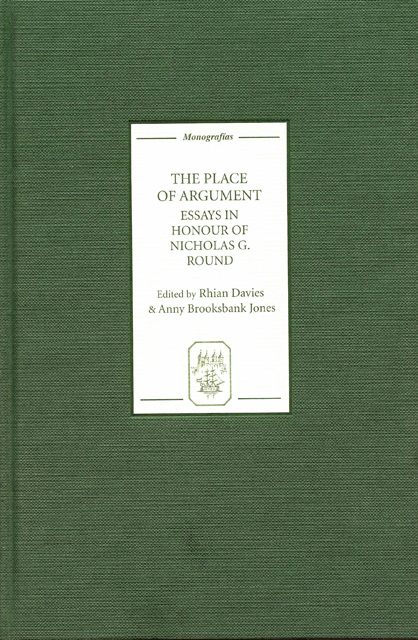The Recovery of the Knight: Myth and Regeneration in Galdós’s El caballero encantado
Published online by Cambridge University Press: 10 May 2023
Summary
For several decades after its publication in 1909, Galdós’s El caballero encantado was dismissed by critics as a ‘curioso capricho’ (Gamero y de Laiglesia 1934: 368), or as evidence of ‘a decline in creative energy’ (Eoff 1954: 16). By the 1970s, the novel was being taken more seriously as a reflection of the political and social context of the time of its composition, notably by Julio Rodríguez-Puértolas, who associates the work with post- 1898 regenerationist literature, with the political events of 1909 (notably the Morocco expedition and the Semana Trágica) and with the concerns which led Galdós to assume leadership of the Conjunción Republicano-Socialista in the same year. Clericalism and caciquismo are, he argues, clearly portrayed as the scourges of national life, especially in the countryside, where tenants, constantly ground down by high rents and low yields, become the virtual slaves of grasping landowners. Hunger, disease and lack of education create a vicious cycle in which the rural population, inhibited by fear from exercising even the ineffective political rights granted by parliament, becomes permanently imprisoned.
Few critics would quarrel with this view. There is no shortage of evidence, both in the novel itself and in Galdós’s other writings in the years around 1900, of his increasing interest in the plight of the rural poor, a concern which he shares with regenerationist writers such as Joaquín Costa. Nevertheless, a predominantly socio-political reading prompts a number of questions. The remedy for the ills of rural Spain proposed by the protagonists at the end of the novel (draining the malarial marshes around Boñices, and providing twenty thousand schools) is unencumbered by any clear practical measures for achieving these goals. The echoes of the violent events of 1909, the Semana Trágica and the Moroccan War, are so faint as to be virtually nonexistent. Though it is true that Galdós’s political writings and speeches in the period 1907–10 were frequently inflammatory (Berkowitz 1948: 391–2), by the spring of 1910, he had moved towards a more moderate position, and soon left the Conjunción to form the Partido Reformista (Dendle 1986: 33– 44). Some of this moderation is reflected in a speech by the mythical figure of La Madre, who personifies Spain in all its historic diversity.
- Type
- Chapter
- Information
- The Place of ArgumentEssays in Honour of Nicholas G. Round, pp. 73 - 85Publisher: Boydell & BrewerPrint publication year: 2007

